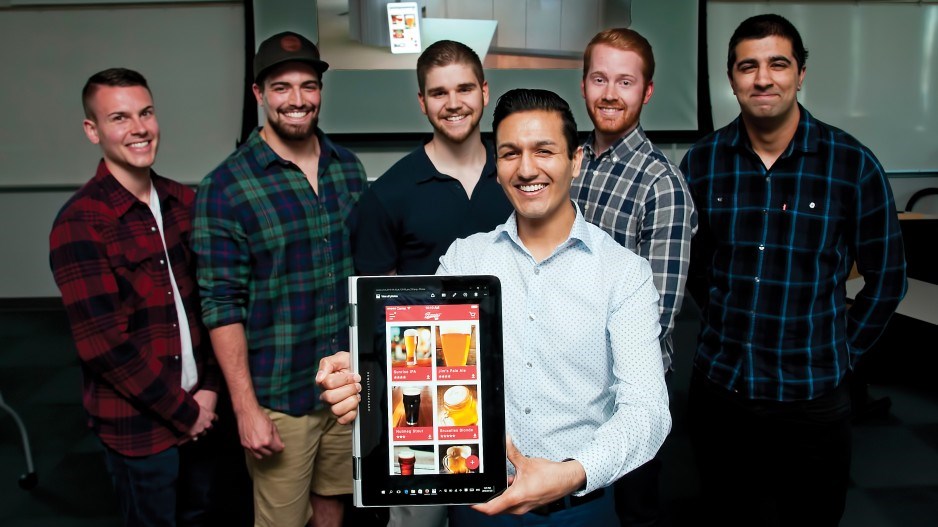The idea of making beer at home has long been slightly daunting for the average suds fan. Homebrew systems can be elaborate and require an entire basement to run, or finicky enough to practically require a degree in chemistry to nail down flavours and ingredients.
Ryan Lymburner and his team are hoping to change that with Brewstr, an automated home-brewing system, while tapping into Vancouver’s growing craft beer sector.
“While I enjoyed the creative aspect of experimenting with unique ingredients, I quickly became frustrated with the tedious tasks of brewing,” said Lymburner, who is pursuing studies in business administration and mechatronics system engineering at Simon Fraser University’s (SFU) Surrey campus.
A recent Beer Me BC study showed a decrease in beer sales from liquor stores, while direct brewery sales increased from 16.3% in 2013 to 27.4% in 2015.
That same Beer Me BC survey, which gauged Metro Vancouver craft brewery trends from 2013 to 2015, also found that “the primary place of consumption for craft beer remains to be at home. The percentage of responses has remained between 65.3% and 70.1% in each of the three years reported.”
Lymburner said his venture isn’t looking to steal sales from local breweries, but is aimed at creating a system much like a single-serve coffee system that allows consumers to buy flavours from big-name companies. The goal is to create a product no larger than an oversized coffee machine.
“In terms of our place in the market, we aim to complement craft breweries,” he said. “Rather than acting as a direct competitor, we are interested in working with local brewmasters to develop ingredient packs that can be used in our system, in addition to the community recipes that we plan to offer through the Brewstr smartphone application.”
Dustan Sept, the founder of Beer Me BC and the beer and cider marketing manager for Central City Brewers + Distillers, said the idea sounds interesting, but he is not sold on its real-world applicability.
“I think that the accessibility of home brewing has been a limiting factor in wider adoption,” Sept said. “A product like Brewstr takes many of the barriers to entry out of giving it a go. On the other hand though, home brewing for many is both a hobby and a way to save money. As a hobby the process and labour is part of the joy, and this product removes that from the process. Also, it is much more costly than traditional basic home brewing, which also has less appeal. A product like this opens brewing to new customers but doesn’t necessarily appeal to traditional homebrew markets.”
Sept added there’s also the important cultural and community aspect to heading to the local brewery to get your beer.
“Consumers not only like the idea of supporting local business, but the brewery is a social hub,” he said. “It brings people together and they build an emotional connection with the brand, product and people. From the consumer survey data the largest shift appears to be from bars and pubs to the brewery. This makes sense given that people are not just going to buy beer to take home, but also enjoying it on site.”
The Brewstr venture, which is part of SFU’s technology entrepreneurship program based in Surrey, is working on its second prototype – which it’s billing as “Canada’s first automated home-brewing system.”
Sarah Lubik, SFU’s director of entrepreneurship, co-director of the technology entrepreneurship program and the Brewstr students’ instructor in the university’s startup experience class, said the idea is simple but novel.
“The Brewstr team is a fantastic example of what happens when you put mechatronics and business students together and then get out of their way to let them experiment and pursue their passions.”




